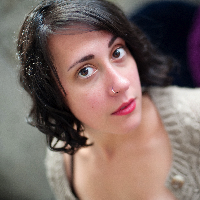I have often tried to explain to others—and understand myself—what it feels like to lose someone I felt like I’d been married to.
People are pretty sympathetic, since he and I had dated for six years. We’d also met and dated briefly when we were teens, and we were engaged when we broke up.
The way I had best described it to others is that it’s like getting a divorce—it feels that monumental to me.
I haven’t been the same since.
I’ve also said that it’s kind of like I am living a second life now. I feel very different in big ways.
Everything is just sort of—different.
But it has finally dawned on me what it is really like to go through a change that huge—it’s like living with a benign tumor. A big one.
We don’t have to worry about it killing us, but we have this huge lump on the side of our arm, or face, or wherever. And we just adapt to living with it. It’s doable, but it’s ultimately going to be different than before.
We always notice it’s there—every day.
Or perhaps it’s kind of like losing a limb—like we don’t have a left arm from the elbow down. Everything we do has to compensate for this handicap. Things have become more difficult because of it, but we assimilate. We learn how to use our other arm in ways we hadn’t before—making it more agile, adept and strong.
We could also compare it to going blind.
Similar to going blind—we need to relearn how to live in our world with this new change. Never again will we gaze into beautiful eyes. Never again can we share a gorgeous sunset with a lover. No longer can we navigate with ease throughout our surroundings, without the support of others, until we learn to adapt.
The thing is, even though this is how it feels to lose something of such immensity, it doesn’t look like that to others.
After three years, I no longer get much of sympathy from others. I look okay on the outside, so even if I am in incredible pain on the inside, no one is going to know.
It’s a silent kind of suffering.
Because life goes on—but it will never be the same.
I have fallen in love since this happened three years ago, but even if the new person is more amazing than I could have dreamed of, it doesn’t mean that I’m not human and that I don’t have days where I don’t feel completely “right” in my mind.
I had given a piece of my soul away when my ex fiancé left, and now I have to convince myself that life is worth living with the damages incurred.
If we lose an arm, we can still do a handstand with one—but it’s much harder. Still, that handstand could very well be even better than a two-handed one! The work it takes to accomplish a one-handed handstand is undoubtedly more than it would be with two.
We have to relearn balance. We require more strength.
These are things I am trying to find every day—and I am. But it’s a slow process. My one-handed handstand, in many ways, has surpassed the two-handed, but the training is continual.
My new life is becoming the norm more-so each day, as I figure out how to live with part of me gone.
One thing I have learned is this:
If we keep falling over with our one-handed handstand, then we need to ask for help. Don’t just bump into walls and furniture, bruising and further injuring yourself.
No one makes it through life alone.
Relephant:
Incredible Words of Comfort for Someone Suffering the Loss of a Loved One.
.
Author: Amanda Volponi
Apprentice Editor: Anet Kalpakciyan/Editor: Yoli Ramazzina
Photo: Author’s own.







Read 0 comments and reply